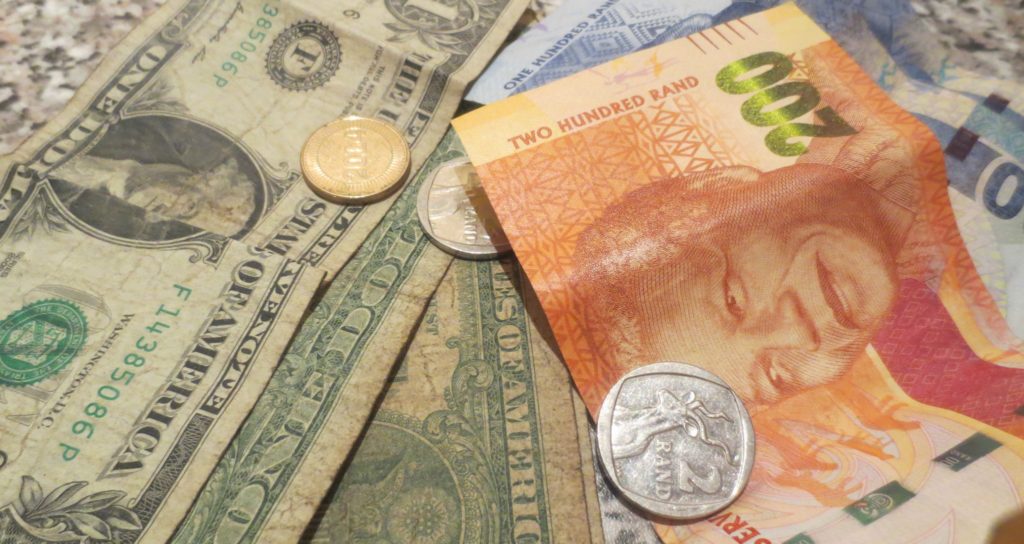By Albert Nxumalo
FACED with reduced revenue inflows due to the crippling economic challenges, the Bulawayo City Council (BCC) is contemplating charging rates and housing stands in foreign currency.
The local authority says it has been “underperforming because of the current economic situation which was unfavourable”.
According to the Finance and Development report tabled during a monthly full council meeting on Wednesday, the local authority said there was an urgent need to charge for services in foreign currency.
It said the current budget has been greatly affected by exchange rates.
The local authority also wants to rebase its 2020 budget in foreign currency, which currently stands at Z$1.315 billion.
“At the crafting stage the rate was at US$1: Z$10.7139 meaning that the budget was US$122 million.
“At the approval of the budget in January 2020 the rate was at Z$17.3531 and the budget than in US$76 million a reduction of 38%. Today the inter-bank rate is at US$1: Z$25” read the report in part which was drafted before Government introduced forex auction system.
Late June, the first currency auction system saw the rate move to 1:57, although the parallel market remained well ahead with one U.S. dollar buying upward of 90 Zimbabwe dollars.
“This budget would translate to US$52.6 million. At alternative market rates of US$1: Z$75 this year’s budget translates to US$17.5 million. There is a need to come up with a supplementary budget to bring the original budget back to US$122 million which will have to follow the due legal process”.
This week it traded at 1:63.
Council said although it has been willing to accept payments in foreign currency for services and payment of bills since 29 March 2020, none has yet been received.
“Customers have made enquiries on paying in foreign currency but have found the official interbank rate of Z$25 which Council is using not attractive when compared to the parallel market exchange rate”.
After exploring several options, council management then recommended that “Council should price stands in foreign currency. Those who have not paid off their purchase prices for stands will have the balances converted to foreign currency and will be paid in foreign currency.
“Council should rebase the 2020 budget and its tariffs to US dollars. Billing will be based on the US dollar tariff converted to Zim dollars.
“Payment by customers can be in US dollars or Zim dollars at alternative foreign currency market rates.”
However, based on the report some councillors are against the blanket charge in foreign currency.
They said residents are currently hardpressed to survive and the move will further worsen their plight.
They suggested a pilot project to first target businesses and the central business district.
“Councillor S. Sibanda said that it was not ideal to introduce foreign currency at this stage considering that there was a shortage of water. In his view, he suggested that the CBD should be targeted first because it had better services than other wards,” reads the report.
Alderman Earnest Rafomoyo said rebasing was ideal, however, the measures should not burden residents.
“Currently residents had challenges in paying their rentals in local currency. If the rebasing was to be adopted, he supported the 50% as a starting point.
Councillor Frank Javangwe who is said to have “appreciated” that residents did not earn or have foreign currency, he noted that some landlords are charging in forex.
“However, it should be noted that landlords charged their rentals in forex and paid their rentals in bonds. Those households should be identified and billed in foreign currency,” he suggested.
On pricing stands in forex, Councillor Ruzive said it was not possible to revalue stands in Selborne Park which council consider as low hanging fruits because they were sold in foreign currency.
“If the Council had opted to charge in forex, it would be ideal to give people incentives then introduce the forex gradually. He suggested that rates should be charged 50% of what was paid during the dollarisation era,” Ruzive is quoted saying.
Contributing to the discussion, the committee chairperson councillor Mlandu Ncube said revaluing stands would be a challenge because the stands were sold with a condition and in local currency.
There was a need to revisit the terms and conditions of the Agreement of Sale, he pointed out.
“Though foreign currency had not been officially introduced and not easily accessible, companies now traded in foreign currency. Rentals were charged in forex and everyone was now trading in foreign currency including vendors. There was no reason why Council should not adopt the same”.
Town Clerk Christopher Dube expressed concern that revenue collection was in local currency yet most services were purchased in foreign currency and Council did not have it.
“He said that rebasing was ideal because Council would be able to provide effective service delivery. It would also be an advantage to ratepayers who wanted to pay in foreign currency. It was also to the advantage of the Council because there would be no need to go back to the parent Ministry and residents for a supplementary budget. Residents should be encouraged to use the facility while it still had some value”.

